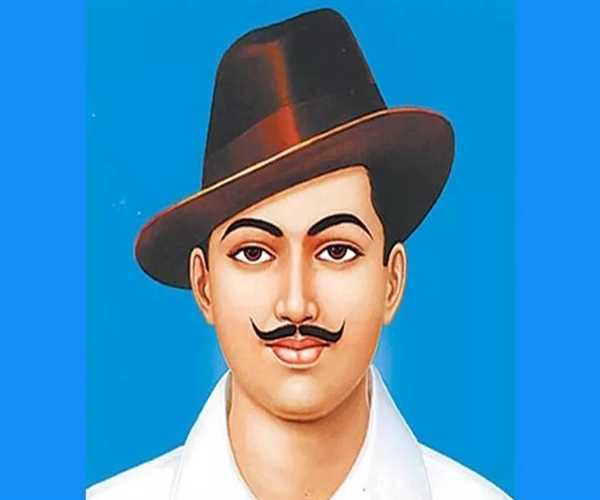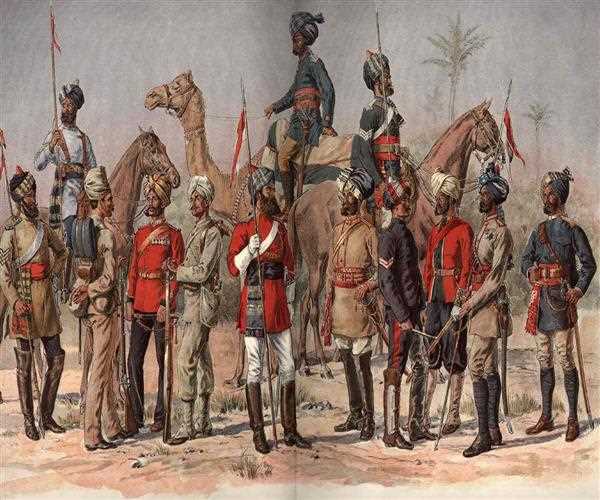
18-Jul-2023 , Updated on 7/18/2023 10:25:37 PM
Bhagat Singh: The Iconic Martyr of Indian Independence and Advocate of Revolutionary Ideas
Highlights
- Bhagat Singh was an Indian freedom fighter and revolutionary who played a significant role in the struggle for India's independence from British rule.
- Born on September 28, 1907, in Punjab, British India, Bhagat Singh grew up in a politically charged atmosphere, witnessing the oppressive rule of the British Raj.
- He was deeply influenced by revolutionary leaders like Kartar Singh Sarabha and joined the Hindustan Socialist Republican Association (HSRA) at a young age.
- Bhagat Singh became known for his acts of resistance against the British government. He participated in various revolutionary activities, including bomb-making and targeted killings of British officials.
- In 1928, he was involved in the Central Legislative Assembly bombing as a protest against the repressive Public Safety Bill. Bhagat Singh
and his comrades willingly courted
arrest to use the trial as a platform to expose British atrocities and advocate for India's independence. - During his trial, Bhagat Singh famously declared, “It is easy to kill individuals, but you cannot kill the ideas. Great empires crumbled, while the ideas survived.”
Bhagat Singh was an Indian revolutionary who is considered to be one of the most iconic figures in the country's independence struggle. He was born in 1907 in the Punjab region of British India, and he was inspired by the revolutionary movements that were taking place in other parts of the world, such as Russia and China.
Singh joined the Hindustan Socialist Republican Association (HSRA) in 1928, and he quickly became one of the most active members of the organization. He was involved in a number of daring acts of sabotage and violence, including the bombing of the Central Legislative Assembly in Delhi in 1929.
Singh was arrested and charged with murder, but he refused to defend himself in court. He was sentenced to death, and he was hanged on March 23, 1931. He was just 23 years old.
Singh's death made him a martyr for the Indian independence movement, and his legacy continues to inspire people all over the world. He is often seen as a symbol of revolutionary struggle and the fight for social justice.
Early life and education
Bhagat Singh was born on September 28, 1907, in the village of Khatkar Kalan in the Punjab region of British India. He was the second of four children born to Kishan Singh Sandhu and Vidyavati. Kishan Singh was a school teacher and a freedom fighter, and Vidyavati was a housewife.
Singh was educated at the Dayanand Anglo-Vedic High School in Lahore, where he was a brilliant student. He was also an active member of the school's National Students' Federation. In 1923, Singh enrolled in the National College in Lahore, where he studied law.
Political activism
Singh's political activism began in 1926, when he joined the Hindustan Republican Association (HSRA). The HSRA was a revolutionary organization that was dedicated to the overthrow of British rule in India. Singh quickly became one of the most active members of the organization, and he was involved in a number of daring acts of sabotage and violence.

Source : Thought Co
In 1928, Singh was involved in the bombing of the Central Legislative Assembly in Delhi. The bombing was an attempt to protest against the Simon Commission, which was a British commission that was sent to India to investigate the possibility of granting self-government to the country.
Singh was arrested and charged with murder, but he refused to defend himself in court. He was sentenced to death, and he was hanged on March 23, 1931. He was just 23 years old.
Legacy
Singh's death made him a martyr for the Indian independence movement, and his legacy continues to inspire people all over the world. He is often seen as a symbol of revolutionary struggle and the fight for social justice.
Singh's most famous quote is: "It is easy to kill individuals, but you cannot kill ideas." This quote reflects Singh's belief that the ideals of freedom and justice will always live on, even after the death of those who fight for them.
Singh's life and work have been the subject of numerous books, articles, and films. He is also the subject of a number of songs and poems. Singh's legacy continues to inspire people all over the world, and he is considered to be one of the most important figures in Indian history.
Bhagat Singh was a revolutionary who dedicated his life to the fight for Indian independence. He was a brilliant student, a gifted orator, and a skilled strategist. He was also a committed revolutionary who was willing to sacrifice his own life for his beliefs.
Bhagat Singh's trial gained immense attention and sparked widespread public support for his cause. Despite his young age, he displayed immense courage and determination during the trial. On March 23, 1931, at the age of 23, Bhagat Singh was hanged by the British government in Lahore Central Jail. His martyrdom left an indelible mark on the Indian independence movement and inspired countless individuals to fight for freedom.
Bhagat Singh's revolutionary ideas, his sacrifice, and his unwavering dedication to the cause of Indian independence continue to inspire people across the country. He is remembered as an icon of bravery and patriotism, and his legacy remains an integral part of India's struggle for freedom.
Major Contributions and Acts of Defiance
He and his fellow revolutionaries aimed to protest against the repressive measures of the British government. Although no one was hurt in the incident, Bhagat Singh and his associates willingly surrendered to the authorities.
Singh's legacy continues to inspire people all over the world. He is a symbol of revolutionary struggle and the fight for social justice. His life and work remind us that the ideals of freedom and justice will always live on, even after the death of those who fight for them.

SEO and Content Writer
I am Drishan vig. I used to write blogs, articles, and stories in a way that entices the audience. I assure you that consistency, style, and tone must be met while writing the content. Working with the clients like bfc, varthana, ITC hotels, indusind, mumpa, mollydolly etc. has made me realized that writing content is not enough but doing seo is the first thing for it.
Join Our Newsletter
Subscribe to our newsletter to receive emails about new views posts, releases and updates.
Copyright 2010 - 2026 MindStick Software Pvt. Ltd. All Rights Reserved Privacy Policy | Terms & Conditions | Cookie Policy